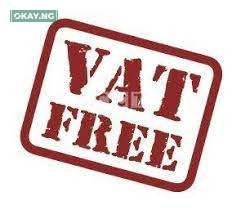The 2024 Nigeria Tax Bill, currently making its way through the legislative process, aims to strike a delicate balance between providing relief for consumers and generating crucial revenue for the government. A key feature of the bill is a proposed increase in the Value Added Tax (VAT) rate, accompanied by exemptions on essential goods and services.
While the bill seeks to broaden the tax base and modernise the tax system, concerns have been raised about the potential impact of the increased VAT rate on inflation and the cost of living for ordinary Nigerians.
“The government is walking a tightrope,” says Adebayo Adeola, an economist at the University of Lagos. “They need to increase revenue to fund critical infrastructure projects and social programs, but they also need to ensure that the tax burden does not disproportionately affect the most vulnerable members of society.”
Key Provisions of the Bill
The bill proposes a phased increase in the VAT rate, starting with a rise to 10% from the current 7.5% until the end of 2025. This will be followed by a further increase to 12.5% from 2026 to 2029, culminating in a significant jump to 30% from 2030 onwards.
To mitigate the impact of this increase, the bill introduces a series of VAT exemptions and zero-rated items. These include:
- Essential Goods: Baby products, locally manufactured sanitary pads, household food items, and essential medicines are among the items proposed for VAT exemption.
- Zero-Rated Items: A wide range of goods and services, including basic food items, agricultural inputs, medical services, and education, are proposed to be zero-rated, meaning they will be exempt from VAT.
The bill’s provisions highlight the complex challenges faced by policymakers in balancing economic growth with social equity. While the increased VAT revenue could potentially fund crucial infrastructure projects like improved healthcare and education, it also raises concerns about the potential impact on vulnerable populations.
“The government must carefully consider the distributional consequences of this tax reform,” emphasises Adeola. “Exemptions and zero-rating mechanisms are crucial to ensure that the burden of the increased VAT does not fall disproportionately on low-income households.”
The 2024 Nigeria Tax Bill is currently under consideration by the National Assembly. The legislative process will likely involve extensive debate and scrutiny as lawmakers weigh the economic benefits of the proposed reforms against their potential social and economic costs.
The success of this tax reform will depend on the government’s ability to effectively implement the proposed measures, monitor their impact, and make necessary adjustments to ensure a fair and equitable tax system for all Nigerians.













